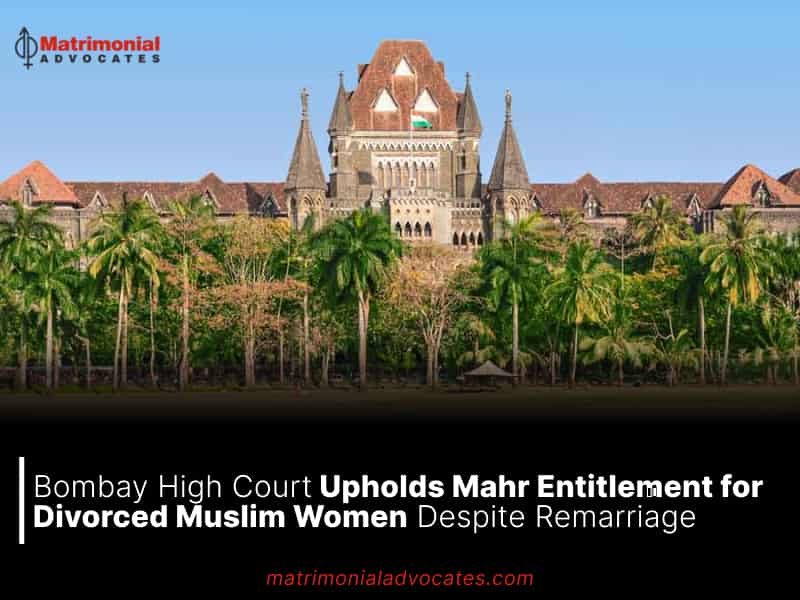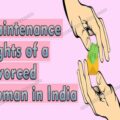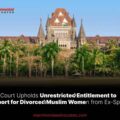
A divorced Muslim woman is entitled to receive Mahr, a lump sum amount payable by the husband to the wife at the time of divorce.
In a recent ruling, the Bombay High Court determined that a divorced Muslim woman retains the right to claim Mahr, a lump sum maintenance amount, even if she has remarried. This entitlement is protected under Section 3 of the Muslim Women (Protection of Rights on Divorce) Act, 1986 (MWPA). Justice Rajesh Patil, acting as a single judge, emphasized that Section 3(1)(a) of the MWPA does not include the term ‘remarriage,’ suggesting that the maintenance protection (Mahr) remains unconditional and applicable even after the woman enters into a new marriage.
“Nowhere does the said Act intend to limit the protection that is due to the former wife on the grounds of the remarriage of the former wife. The essence of the Act is that a divorced woman is entitled to a reasonable and fair provision and maintenance regardless of her remarriage. The fact of divorce between the husband and wife is in itself sufficient for the wife to claim maintenance under section 3(1)(a). Section 3 does not absolve the husband of his duty to make and pay a reasonable and fair,” the judge observed in the order.
The court emphasized that including a condition in the Act to relieve the husband of his responsibilities upon the wife’s remarriage would encourage intentional delays on the part of the husband until the wife enters into a new marriage.
In the context of the Act, Section 3 defines ‘mahr’ or dower, constituting a lump sum amount granted to a divorced Muslim woman. Sub-clause (1)(a) specifies a fair and reasonable maintenance for the woman during the iddat period, a brief 2-3 month period following the termination of the marriage.
This judicial decision stems from a revision application challenging a maintenance order issued by the Magistrate in Chiplun, subsequently affirmed and increased by the Sessions Court in Ratnagiri. The couple, who married in 2005 and divorced in 2008, had a daughter. In 2012, the wife sought maintenance under Section 3(1)(a).
In 2014, the Magistrate granted a lump sum maintenance of ₹4,32,000, payable within 2 months. The petitioner appealed to the sessions court. In 2017, the sessions court not only dismissed the appeal but also raised the maintenance to ₹9 lakh, to be paid within 2 months, with an 8% annual interest accruing if not promptly paid.
Challenging this in the High Court, the petitioner had already paid ₹1,50,000 to the respondent in installments. Meanwhile, the woman remarried in 2018. The petitioner sought to annul the sessions court order, citing the woman’s remarriage.
However, Justice Patil disagreed, asserting that the entitlement to fair and reasonable provision and maintenance for a divorced wife is determined at the time of divorce and remains unaffected by her subsequent remarriage.
“On the date of passing of impugned order the amount payable by the husband got crystallized, therefore, even in the future if the divorced wife re-marries, it will not make a difference if the amount is payable in lumsum. The difference would be only when the amount is payable monthly. Therefore, the amount of ₹9,00,000, in my opinion in fair and reasonable,” the Court held.





